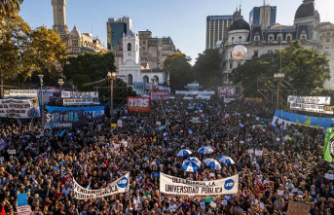Finally, they were allowed to speak. Tuesday was the sixth week in the trial for the Bretigny-sur-Orge rail accident. The victims and their families testified before Evry, describing horror scenes with lasting consequences nine years later. the derailment.
For several days, forty survivors, injured, relatives and friends of the deceased victims, as well as representatives of railway unions, will testify. There were 435 victims identified. Among them, 184 (including 9 legal persons) became civil parties. Less than one quarter of the victims decided to testify.
Jean-Luc Marissal (Vice-President of the Association of Victims of Bretigny) regretted that "it's an obstacle for the victims". He said, "Many people gave up because of lack of support, they didn’t have strength, and that is something I can understand."
Jean-Luc Marissal speaks first, after five weeks' worth of technical hearings in which the court tried to determine whether the Intercites Paris-Limoges train was unable to reach Bretigny-sur station. -Barley, July 12, 2013, due to a network maintenance issue or an undetectable defect of the steel. Before addressing his personal case, he heard Dominique D.'s testimony in court. He was still too upset to allow him to proceed to trial.
The woman wrote a letter recounting the "noise, chaos, and mountain of scrap metal" that was around her during the derailment. She is still physically and psychologically scarred and she continues to work to rebuild herself. The locomotive. Nine years later, she still wonders "Why them? When you think of the dead.
These victims are in pain, their voices are strained, their eyes watery. President Cecile Louis Loyant comforts them. The judge encouraged them to not be afraid of the words and invited them to "take their time, and breathe" as they prepared for the speech.
The dozen civil parties that spoke Tuesday were all from different backgrounds and professions. However, they share the same trauma and fear of trains. Philippe G., one of the injured, said that he used to travel early in order to sleep in the wagon. He takes sleeping pills if this is impossible. He said, "But I always wake awake with a start whenever I pass a switch." It was on this track that a fishplate, a type of metal staple, became loose and caused the accident on July 12, 2013.
This man rents a car when he arrives in Paris. He admitted that he had made mistakes and was aware of the possibility of an accident. "But I have greater confidence in myself, and in my driving, than in the SNCF."
Nathalie M. (teacher) should have taken the earlier train. She finally boarded the Intercites Paris-Limoges3657 at 4.53 p.m., leaving Austerlitz station at 4.53 p.m., before derailment at 5.11 p.m. in Bretigny-sur-Orge in Essonne. She tremolos her voice and said, "I told myself, it was okay, it is the holidays, I've an exchangeable ticket. There's no death or injury of a man." She feels "big jolts" when she stands up to go to the toilet. She feels "tossed about, bruised".
Soon, "people" came to our aid and told us to not look down.
Then she calls her friend and informs him that the train is overturned. He doesn't immediately get it and thinks that it is a metaphor. Nathalie M. refuses to take the train even today. She smiles, "But the car not always practical, especially when it comes to Paris."
The hearing was suspended in early afternoon. It will resume Wednesday morning.
The last surveillance tour was conducted by SNCF Reseau (ex–RFF), and Societe Nationale SNCF. They are being tried for "involuntary homicides” and "involuntary injury" until June 17. On June 14, the prosecution will issue its requisitions. The defense lawyers will then present their pleadings.












